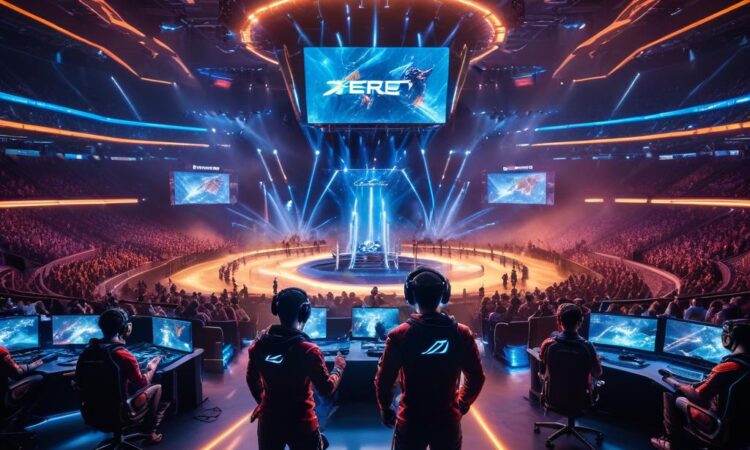Esports and the Olympics: Exploring the Potential
The world of esports has exploded in recent years, captivating millions of viewers and attracting top-tier athletes with impressive skills and strategies. The question that has been swirling in the minds of many, however, is whether esports can find its place in the prestigious Olympic Games. This article delves into the potential for esports inclusion, the challenges involved, and the significant impact it could have on the esports industry itself.
The Appeal of Esports for the Olympics
The inclusion of esports in the Olympics presents a compelling proposition for both parties. For the Olympics, it represents an opportunity to tap into a thriving and rapidly growing global audience, particularly among younger generations. Esports boasts millions of passionate fans, and their inclusion could revitalize the Games’ appeal to a new era of viewers.
For the esports industry, being recognized as an Olympic sport would provide immense legitimacy and elevate its status to unprecedented heights. It would signify a significant step towards mainstream acceptance, attracting wider sponsorship opportunities and propelling the careers of esports athletes to a whole new level.
Challenges to Inclusion: A Balancing Act
Despite the potential benefits, several challenges stand in the way of esports being recognized as a legitimate Olympic sport. The most prominent issue is the question of whether esports can truly be considered a sport in the traditional sense. While esports competitions require incredible skill, dexterity, strategy, and mental fortitude, the debate continues about whether it qualifies as a physical activity.
The International Olympic Committee (IOC) has been hesitant to fully embrace esports, primarily due to concerns about the potential for gambling and the need to ensure fair competition. The IOC’s strict guidelines on doping and age eligibility also pose challenges for esports, where players often start competing at a young age and the use of performance-enhancing substances is a potential concern.
Finding a Compromise: The Path Forward
To bridge the gap between the traditional sporting world and esports, a collaborative approach is essential. The IOC has taken initial steps, recognizing the potential of esports and exploring avenues for its integration. The creation of the Olympic Esports Series, which features virtual simulations of Olympic sports, is a positive development, allowing esports athletes to compete in a format that aligns with the IOC’s values.
However, the ultimate inclusion of esports in the Olympic Games requires careful consideration. The IOC must engage in dialogue with esports stakeholders, address concerns about the ethical implications of esports, and establish clear regulations to ensure fairness and legitimacy.
The Impact on the Esports Industry
The inclusion of esports in the Olympics would be a watershed moment for the industry. It would bring immense prestige and recognition, attracting wider audiences and corporate sponsorships. The potential for esports athletes to compete on the world’s biggest stage would also motivate aspiring gamers, fostering a new generation of talent.
Moreover, the Olympic Games could provide a global platform for esports developers to showcase their games, potentially leading to increased sales and wider adoption. The integration of esports into the Olympics could act as a catalyst for further growth and development within the industry, pushing boundaries and fostering innovation.
Conclusion: A New Era of Sports
The inclusion of esports in the Olympics is a complex issue that requires careful consideration and a collaborative approach. While challenges exist, the potential benefits for both the esports industry and the Olympic Games are undeniable. As technology continues to evolve and the boundaries between the virtual and real worlds blur, the future of sports may hold a space for esports alongside traditional disciplines. The question now is not whether esports can be included, but how it can be integrated seamlessly into the Olympic Games while upholding its integrity and values.

